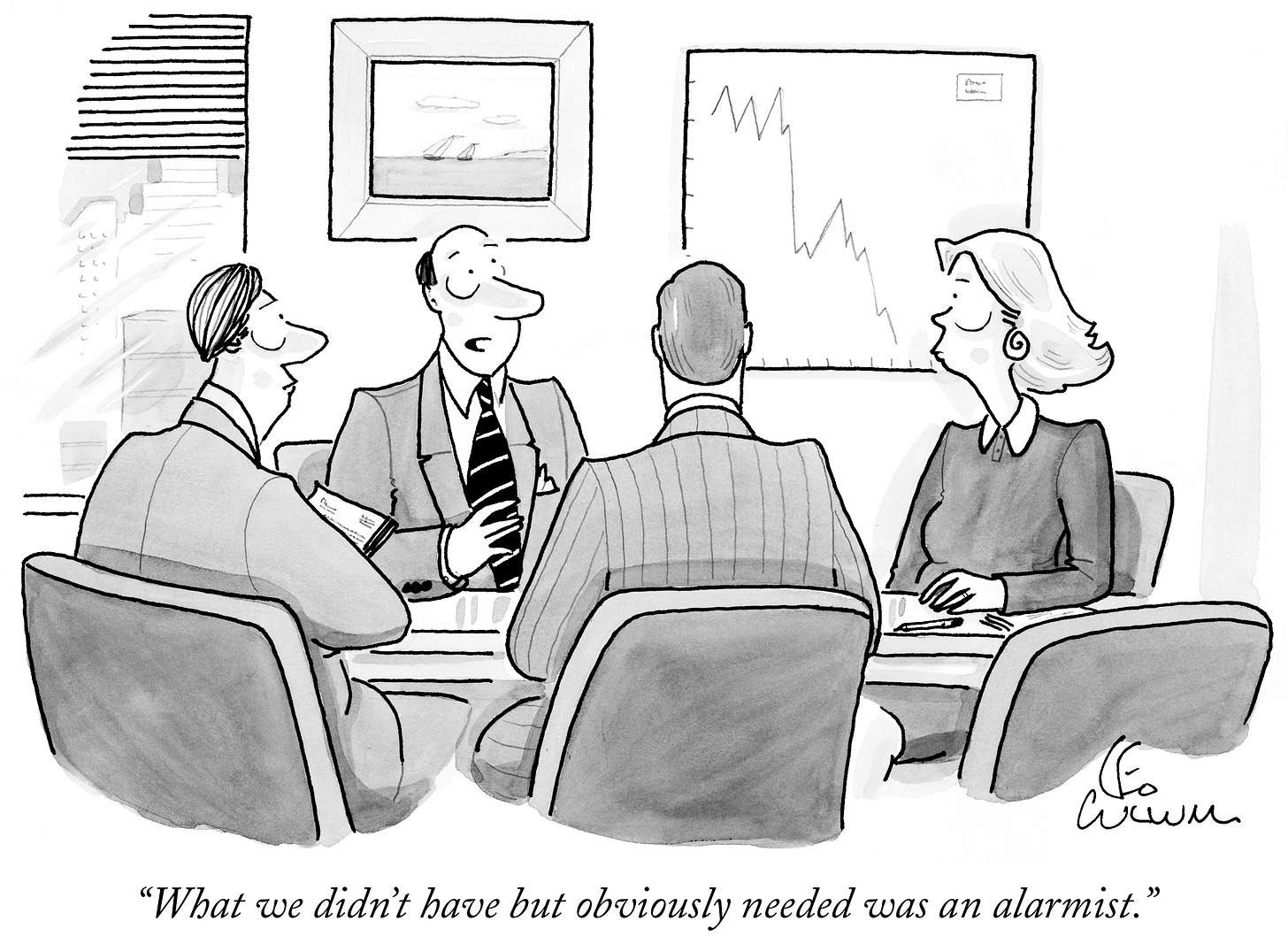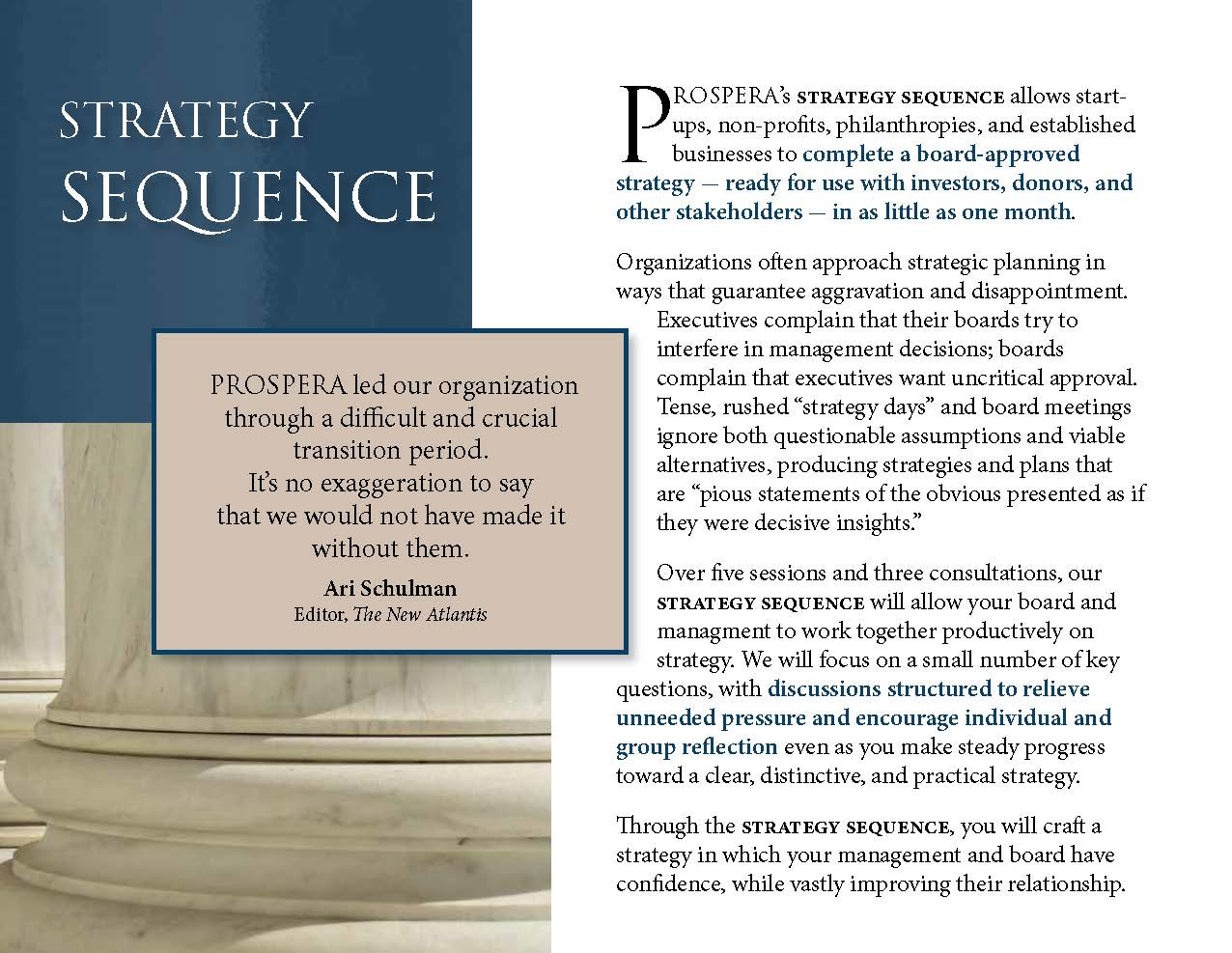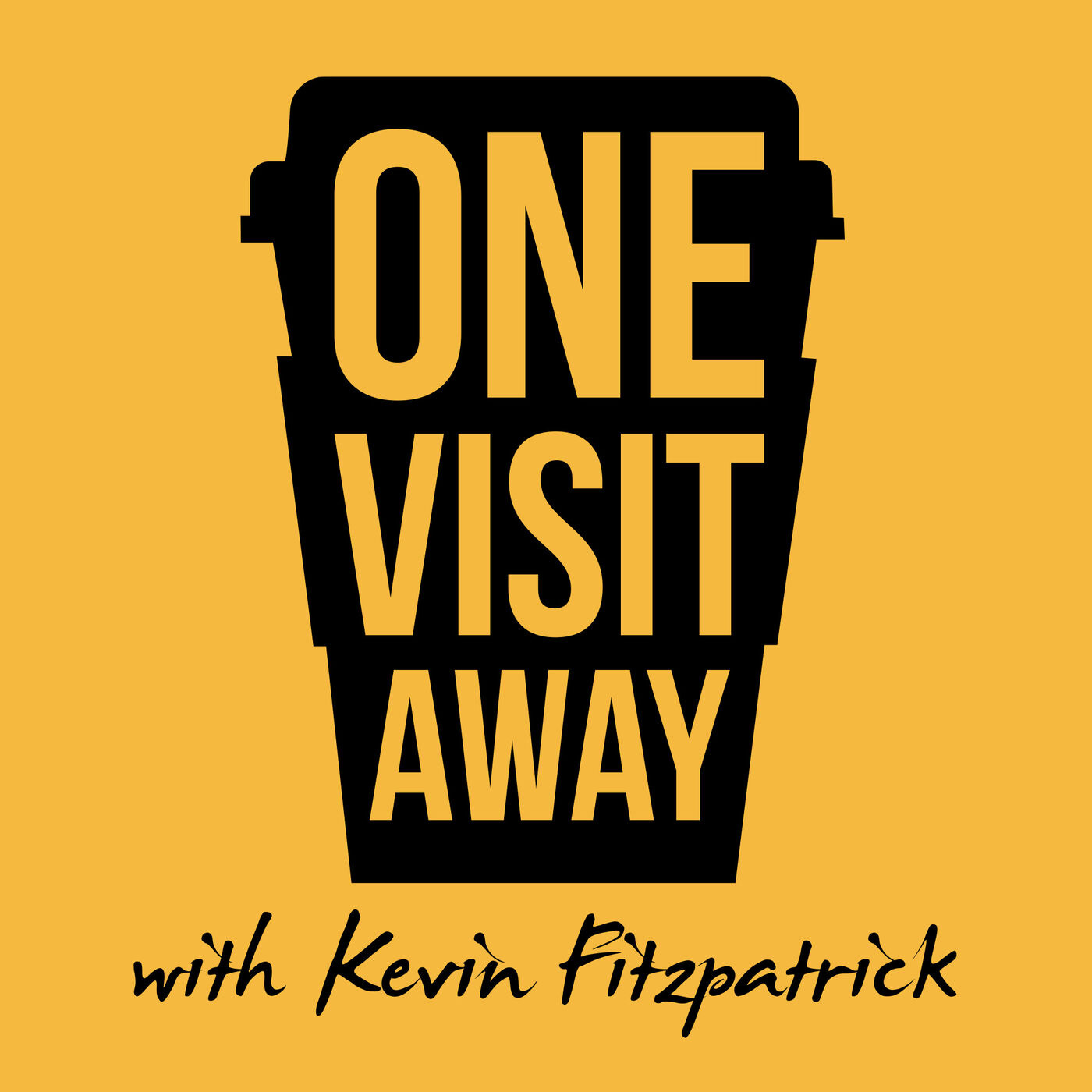A Russian proverb tells us that “a spoonful of tar spoils a barrel of honey, but a spoonful of honey does nothing for a barrel of tar.”
We’ve all had the experience of feeling disappointments more keenly than similar moments of happiness, and it turns out this is part of human nature. A large study found that “the greater power of bad events over good ones is found in everyday life and major events, in close and distant and relationships . . . . there are hardly any exceptions . . . bad is stronger than good, as a general principle, across a broad range of psychological phenomena.”
Below, I’ve linked to an article from the Harvard Business Review showing that a bad hire reliably undermines the work of two outstanding employees. Likewise, as I discussed in an interview on the One Visit Away podcast (link below), bad strategy permeates an organization, crippling critical revenue-generating activities.
This seems discouraging, but it turns out to be good news for strategy development.
One of the myths of strategy is that it’s a rarefied activity for an elite with special training or unique insight. On the contrary, developing a good strategy is mainly a matter of choosing not to do things without a good reason.
Our reasons are usually not even close to being as good as we might hope. Nevertheless, if we can commit to testing our assumptions, we will have taken a big step toward a better strategy.
Charles Munger on Avoiding the Bad
It is remarkable how much long-term advantage people like us have gotten by trying to be consistently not stupid, instead of trying to be very intelligent.
Not a “Strategy Day” — a Strategy Sequence
Organizations often approach strategic planning in ways that guarantee aggravation and disappointment.
My new service, the Strategy Sequence, allows start-ups, non-profits, philanthropies, and established businesses to complete a board-approved strategy - ready for use with investors, donors, and other stakeholders - in as little as one month.
The sequence includes five 90-minute sessions with up to twelve members of your staff and board, three additional 90-minute consultations with your staff, and four guided assignments, including the drafting of a strategic plan for board approval.
To learn more, download the summary or schedule a free 15-minute consultation.
Toxic Employees > Superstars
The Harvard Business Review presents sobering research showing that “one toxic employee wipes out the gains of more than two superstars.”
“The Successful Strategist” on the Strength of the Bad
Bad Is Stronger Than Good (S1:E2)
The People Question (S2:E15)
Fundraising Problems = Strategy Problems
I was very happy to be interivewed on the One Visit Away podcast on the effect of poor strategy on fundraising.







